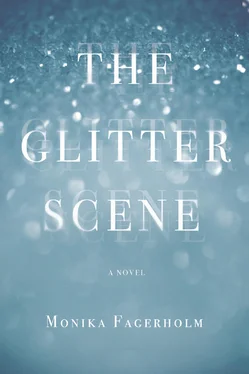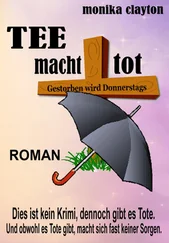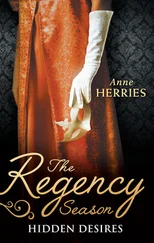Tough, sharp stems are forced up from plants and he is not very good at it. A rather hopeless task too if you think about the climate, he explains to Solveig sometimes, a bit vaguely as always when he is talking to her about his greenhouse that he built on property Solveig has rented to him. He certainly has all sorts of fertilizer in there, strong chemicals and strange lamps to “stimulate” the vegetation, he says with authority, even though it does not help. Tobias does not really have the knack; all the knowledge he has acquired about plants, and mainly about roses, he has gotten from books. According to Solveig, it may all be beautiful but in reality it just is not enough.
Maybe Solveig is right, Johanna does not know. On the other hand: Johanna does not care about greenhouse gardening, the art of getting roses to grow or die; she likes Tobias, likes going to the greenhouse, being there with him. Just the two of them, Solveig has asthma and cannot handle the air, but sometimes she shows up anyway. Suddenly standing in the doorway, reminding Tobias to wear his gloves. This period, the last period, Tobias in the greenhouse before he gets sick and dies, he often had to come to Solveig in the kitchen and get Band-Aids, his hands covered in small cuts.
But for the most part it is just Johanna and Tobias in the greenhouse, on their own. Tobias moving up and down the rows, cutting and pruning. Johanna in her place, a stool made of an upside-down bucket next to the water hose and the books by the entrance. Yes, there is a bookshelf with books in Tobias’s greenhouse, next to all the greenhouse equipment and a record player playing opera music: a part of Tobias’s large library that he could not take with him when he moved from the apartment on the hills north of the town center to the senior housing facility by the square. For example A Lesson in History—A Sense of Belonging to the Village, Architecture and Crime , and History and Progress , which was once Tobias’s favorite work of reference: a heavy, worn bundle, several pounds of it, on the top shelf, mold on the edges.
“You need to know your history in order to know who you are.” Tobias was once someone who said things like that, with a pedagogic fervor that had pretty much left him even before he left the teaching profession; he had taught history at the coed school and the high school. He had also been Solveig and Rita’s teacher, that is how long Solveig and Tobias have known each other. Even longer too: they became friends at the swimming school where Tobias had taken notice of the twins’ swimming talent, the twins’ talent in general, the twins always did well in school too.
You have to know your history, Tobias said to Johanna once and started telling her about some local history but her concentration started fading while listening to the Old Men’s Choir over five generations, the like. That’s not mine, Tobias, she had wanted to say, but on the other hand: her own history, in that way, what would she have to add? The Marsh Queen, the corridors at school, to the music, but Råttis J. Järvinen who also says that then, Johanna, one might also learn how to play an instrument, practice a little . Nah. My story. Not exactly elated at the thought.
So they have not done a lot of talking there in the greenhouse, it just turned out that way. Just been there together, the damp everywhere, Tobias’s music playing on the record player. Tobias slowly moving up and down the rows between the plants, Johanna on her bucket, and the titles of the books her gaze rests on, the scissors, the knives. The dusk falling outside can be seen through a hole in the plastic wall, see the road like a line , the light, the Winter Garden.
“Tell me about the American girl, Tobias.”
In any case Johanna is thinking about what Tobias said about needing to know your history when she goes down to Tobias in the greenhouse after meeting Ulla on the field the first time, after being given the snow globe, from the Winter Garden.
“Project Earth, Tobias. It’s something we’re doing at school.”
Tobias stops what he is doing, surprised, but at the same time, what else is there to say about that?
“I know, Tobias,” says Johanna, “that Bengt is my father and he loved the American girl and that Björn, the one who killed her, was also from here, the cousin’s house—
“And now, Tobias, I want to know everything. You know just as well as I do that Solveig doesn’t say anything. I want to know. Tobias. Everything.”
THAT RHYTHM AND THE QUIET CHILDREN, 1969
TOBIAS TALKS ABOUT THE DISTRICT like another world, even though it is not more than thirty–forty years ago. About the capes: the Second Cape, next to the sea, where he, at the beginning of the 1960s, runs a swimming school for the District’s children before the summer settlers take over the beautiful cliffs of the archipelago. A housing exhibition of the vacation homes of the future is being built on the Second Cape, the first of its kind in the country, it is finished in 1965. Modern houses in a bold, new architecture are sold as summer camps for people who can afford to buy them because they are expensive houses—mostly outsiders, from the nearby city by the sea for example. Located just forty miles away and there is a road the whole way so it makes the area especially attractive. Thus the Second Cape is transformed into a secluded place, rather inaccessible for the District’s own residents. The public beach is moved to the woods behind the First Cape, Bule Marsh.
The First Cape is located right behind the Second Cape, a bit off to the side, farther inland. It has more reeds, no sandy beaches or jetties there. The tall hill on which at that time there was only an old three-story house on it with turrets can be seen from a distance, far out at sea as well, like a landmark. In the very beginning, when Tobias comes to the District as an elementary school teacher in 1959, the house is empty and there is no sign of any owner making claims to the house. In and of itself it is not striking at that time: after the war, the entire District was a military base for the occupying power and was closed to all outsiders and when it is returned and opened again, not everyone who had been evacuated returns. The devastation was immense, homes, properties destroyed, burned down—not something you particularly want to see.
And below the hill then “the cousin’s property,” a red cottage with outbuildings and a tumbledown baker’s cottage where the twins, Rita and Solveig, will come to live and grow up together. The cousin’s property: named after the old man who owns the place; he is called “the cousin’s papa” and nothing else. A jovial name for a grouchy and obstinate man who, shortly after the District becomes an open area, comes out of nowhere together with his brother and his brother’s wife and their three small children and has, it turns out, papers saying that he is the new owner of certain land on the First and the Second capes. He won them in a poker game from one Baron von B. who, naturally after the game had taken place in some military barrack at the end of the war, tried to do everything in his power to invalidate the transaction. But it was futile, Baron von B. had signed over portions of his property in the presence of witnesses, nothing to be done about the matter.
In other words, such a strange, small clan: maybe you think what kind of loose rabble—who, without asking anyone’s permission, settles down in the house on the hill on the First Cape and do not leave voluntarily; a countryman is needed to get them to leave. A bit amusing; here today, somewhere else tomorrow, people like that, as it were. But they do not disappear, they just move down to the foot of the hill and when you realize the cousin’s papa actually owns that place (and large sections on the Second Cape as well, which he later sells to the company with the housing exhibition) you adjust your attitude a little. All this ownership still musters an ounce of respect together with the fact that shortly thereafter a terrible thing happens, the mother and father to the three small children die in a car accident. Crash into a hill at a high speed on the way to a dance competition (that was what they were, circus performers, professional dancers). And three small orphaned children left to fend for themselves with the man in the cottage, in that mess… and children are children despite everything, you can see from a long way off how it is going with those children. You try and do what you can for them, get them clothes, food, even if it needs to happen in secret so that the old man, who mainly spends his time sitting in his room boozing, will not become angry.
Читать дальше











